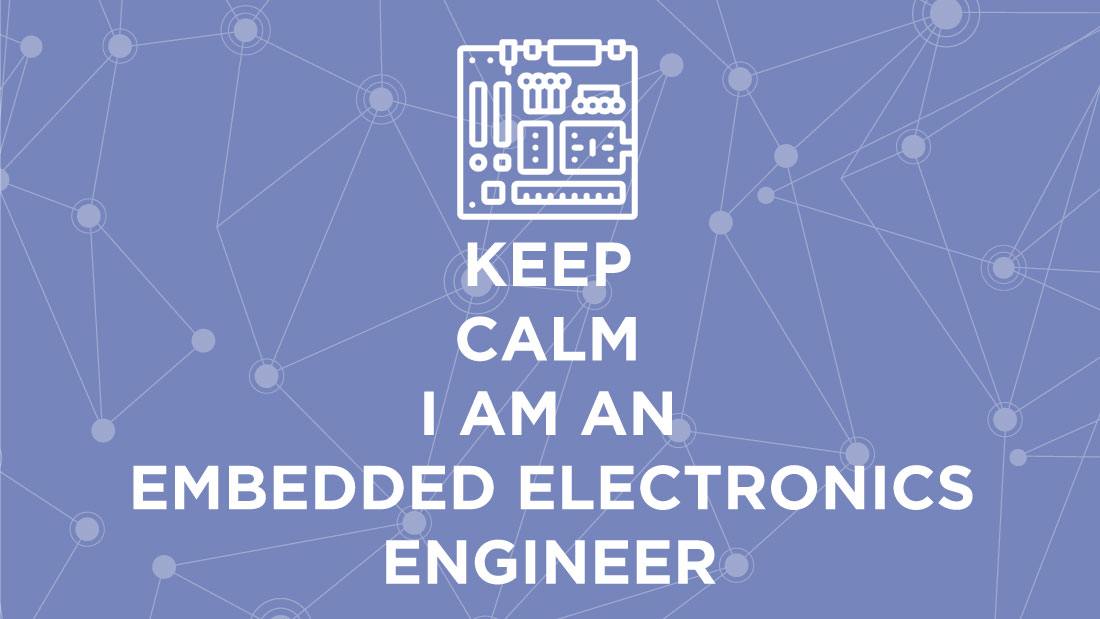
Embedded Electronics Engineer
The embedded electronics engineer is involved in many fields of application, as intelligent systems are increasingly present in industry (aeronautics, automotive, defense, energy, railways, health, multimedia, semiconductors, space, IoT, telecoms, etc.), but also in everyday life. Find out about its missions, its educational background, the skills required, its salary, …
The term “embedded system” covers two realities, on the one hand the hardware and on the other the software used. In this job description, we will focus exclusively on the hardware aspect, the software part being dealt with in a separate article.
Are you looking for a company specializing in embedded systems to help you with your project?
We have design centers in Europe (France), Eastern Europe (Serbia) and a branch in the USA (California, in the Silicon Valley).
Contents:
Embedded Electronics Definition
An embedded system is a set of hardware and software designed to carry out a predefined task. Autonomous, often real-time, its resources are limited, which will lead to a set of optimizations at both the hardware and software levels.
How does the job of embedded electronics engineer differ from that of electronics engineer?
As its name suggests, the former is specifically interested in the field of embedded systems. For example, an electronic engineer who designs a board installed in a hydroelectric power station (fixed, no major space constraints, etc.) does not have the same constraints as an embedded electronic engineer who will be working on the design of a component for a 5G smartphone.
What does an electronics engineer do?
Let’s take the example of an embedded electronics engineer specializing in the design of electronic boards.
First of all, he analyses the specifications, which may be drawn up by the client or which he may have written himself.
He then defines the hardware architecture and specifies the names and features of the main associated electronic components.
Once the architecture has been validated, he then moves on to the electronic design phase. From a specification, taking into account the constraints, he creates a schematic.
The board placement / layout part is then launched, which he can carry out himself or subcontract to a service provider, checking that the router complies with the requirements of the specification. In parallel, simulations are carried out.
Following testing and validation, the product can then be industrialized.
This is a job that requires a significant amount of information monitoring to determine the most appropriate technological processes and procedures for the project. As technologies evolve regularly, it must also keep abreast of recent innovations.
Finally, more generally, the embedded electronics engineer provides technical solutions to the problems posed to him. He may be called upon to advise clients, to help them meet the specific needs of their cutting-edge industries.
How to become an embedded electronics engineer?
To become an embedded electronics engineer, you must have a master’s degree from an engineering school or university.
In France, many schools prepare for this profession, here are a few examples:
For engineering schools with integrated preparation (after a bachelor degree): ISEP, ECE, INSA…
After a two-year preparation, schools such as ENSEEIHT, ENSIL, ENSEA or ESIEE offer very good training courses.
Some universities also offer courses: The University Nice Sophia Antipolis, the University Paul Sabatier (Master’s degree in Electronics, Electrical Energy, Automation EEA), …
Required skills
First of all, he must have a good knowledge of his field of specialization (FGPA, board, power electronics, etc.), embedded architectures and master the associated technical environment.
He must also master CAD tools (e.g., Cadence, Synopsys, Mentor…) and simulation tools.
Furthermore, as the hardware and software components of embedded systems are intrinsically linked, he should ideally have some programming skills, for example in C and C++.
At the methodological level, he must be familiar with the V-model or agile methods.
Finally, he must be fluent in technical English for non-native speakers.
Is the job of embedded electronics engineer right for me?
First of all, it is a job that allows you to have a global vision of the system to be designed. It requires a love of handling and being close to the hardware; embedded electronics engineers often say that they find it more concrete than software code.
It is a job that requires interpersonal and communication skills. Indeed, during the course of his projects, the embedded electronics engineer is required to interact with the various teams he works with, but also with the client.
It is particularly suitable for people who are methodical and who know how to be rigorous. In addition, certain qualities such as creativity and a taste for challenge are sought after by recruiters.
Furthermore, as technologies are constantly evolving, the embedded electronics engineer must demonstrate excellent learning skills.
Embedded electronics engineer salary
The salary depends on his or her training, experience, specialty, or the region where he or she works. For example, in France, a beginner may be entitled to a salary between 33K€ and 36K€.
Career development prospects:
At ELSYS Design, the embedded electronics engineer has various career development opportunities. For example, he or she can progress to the position of embedded electronics project manager or electronics technical manager.
Other professions to discover:
Here are other job descriptions likely to interest you:
- Electronic Board Design Engineer
- Analogue electronics engineer
- Power Electronics Engineer
- FPGA Engineer
Jobs offers
The embedded electronic engineer has a fundamental role in companies specializing in the embedded field.
In this respect, ELSYS Design regularly proposes job offers for embedded electronic engineers. In France, ELSYS Design has offices in Paris, Rennes, Nantes, Grenoble, Lyon, Aix-en-Provence, Nice Sophia Antipolis and Toulouse.
The offers are to be discovered on our job site. However, if there are no offers available at the time of your consultation, do not hesitate to submit an unsolicited application! We will study it systematically.